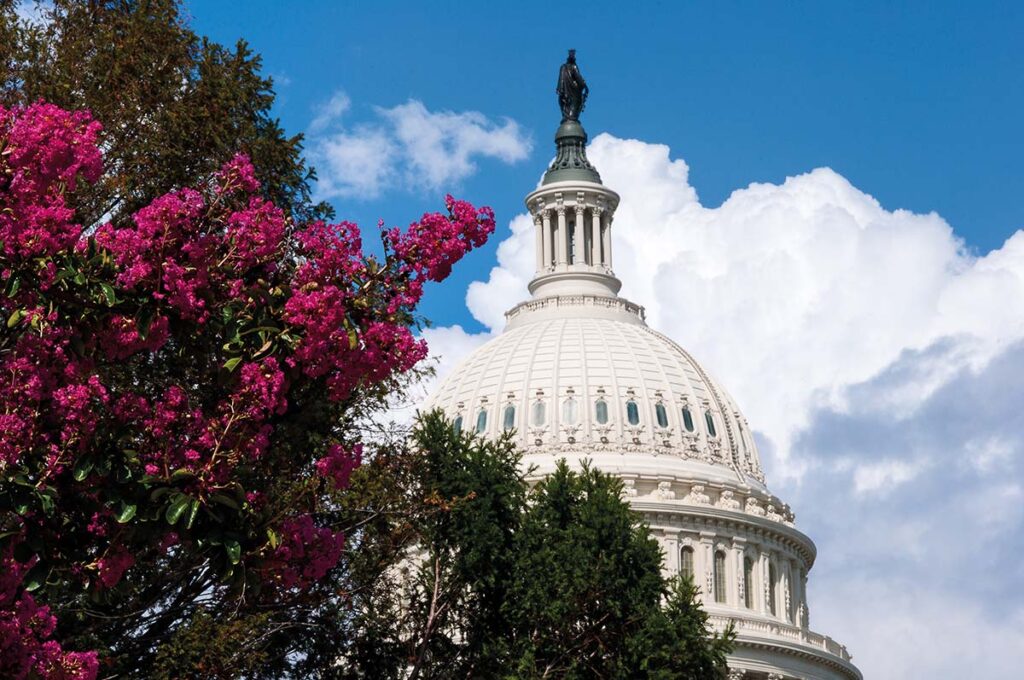
Electric cooperatives will soon benefit from streamlined reviews of their infrastructure projects under the National Environmental Policy Act, thanks to changes in the law pushed by NRECA and approved by Congress as part of a bipartisan agreement to raise the nation’s debt limit.
In a major victory for electric co-ops, the process will now be expedited so that environmental impact statements must be done within two years and less intensive environmental assessments must be completed within a year.
Co-op leaders also will have new opportunities to engage directly with federal officials as part of the environmental review of their projects.
“As our nation increasingly relies on electricity to power more of the economy and threats to reliability mount, it is critical that we permit, build and maintain a robust electric grid,” said NRECA CEO Jim Matheson. “These permitting reforms are an important step forward that will help electric co-ops meet future energy needs while maintaining affordability and reliability.”
Co-ops must undergo NEPA reviews when they seek permits to build major new energy projects. In some cases, they also are required to go through the permitting process when they apply for Rural Utilities Service loans to expand, upgrade and modernize their systems or to remove vegetation that is threatening power lines on federal land.
In February, John Carr, vice president of strategic growth at Dairyland Power Cooperative in Wisconsin, told the House Natural Resources Committee that the federal environmental review process takes too long, costs too much and makes it more difficult for electric cooperatives to provide reliable, affordable power to their members.
“Dairyland and other electric co-ops support the appropriate consideration of potential environmental impacts of energy projects during the permitting process, but the existing process impedes our ability to deploy clean energy to meet the current and future needs of our consumers and communities,” Carr testified.
That message has been reinforced by other co-ops and NRECA leaders who have pressed Congress to take action on permitting reform. It was one of the main issues that co-op leaders brought to their lawmakers’ attention during NRECA’s Legislative Conference in April.
The reforms passed by Congress also mandate that if one agency develops a “categorical exclusion” from certain rules for a specific type of project, another agency can use that same exclusion. The changes also create an expedited permitting process for large energy storage projects.
The House approved the permitting reform provisions as part of the debt limit deal on May 31. The Senate approved the package on Thursday, and President Joe Biden signed it into law on Saturday.
Erin Kelly is a staff writer for NRECA.